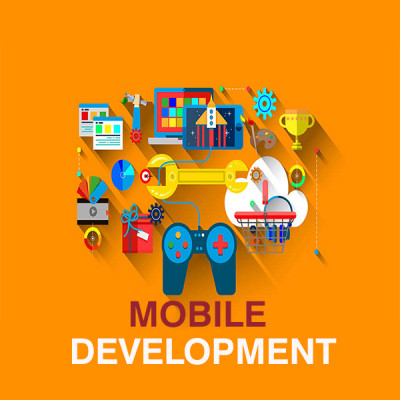+ View more
Course overview
What will i learn?
- Game development involves creating interactive experiences for players, typically in the form of video games. While I can't directly develop games myself, I can provide information on the key aspects of game development: Game Design: Game design involves conceptualizing the overall gameplay experience, including the mechanics, rules, objectives, and storyline. This phase establishes the foundation for the game's development. Game Engines: Game engines are software frameworks that provide the necessary tools, libraries, and functionalities to develop games. Popular game engines include Unity, Unreal Engine, and Godot. These engines help with rendering graphics, physics simulation, audio, and scripting. Programming: Game developers utilize programming languages like C++, C#, or JavaScript to implement game logic, handle user input, create artificial intelligence, and manage game state. Depending on the game engine used, specific scripting languages or visual scripting tools may also be available. Art and Assets: Game development involves creating visual assets, including 2D or 3D models, textures, animations, and sound effects. Artists and animators use software like Adobe Photoshop, Blender, Maya, or 3ds Max to create and optimize assets for the game. Gameplay Mechanics: Implementing gameplay mechanics involves programming interactions between the player and the game world. This includes movement, collision detection, physics simulation, character behavior, and more. Game designers work closely with programmers to ensure the desired gameplay experience. User Interface (UI): The UI includes menus, heads-up displays (HUDs), health bars, inventories, and other on-screen elements that facilitate player interaction. Game developers design and implement intuitive and visually appealing UIs to enhance the overall user experience. Testing and Debugging: Thorough testing is crucial to ensure that the game functions as intended and provides an enjoyable experience. Developers perform debugging, playtesting, and quality assurance to identify and fix bugs, optimize performance, and fine-tune gameplay elements. Publishing and Distribution: Once the game is complete, it can be published and distributed on various platforms, such as PC, consoles, or mobile devices. This involves complying with platform-specific requirements, marketing the game, and utilizing distribution platforms like Steam, Epic Games Store, or app stores for mobile devices. Updates and Community Engagement: After release, developers often provide updates and additional content to improve the game or address player feedback. Engaging with the game's community, addressing issues, and incorporating player suggestions can help create a loyal player base. Game development is a multidisciplinary field that requires collaboration between game designers, artists, programmers, sound designers, and testers. The process can vary based on the scope and complexity of the game being developed.
- Game Engines: Game engines are software frameworks that provide the necessary tools, libraries, and functionalities to develop games. Popular game engines include Unity, Unreal Engine, and Godot. These engines help with rendering graphics, physics simulation, audio, and scripting.
- Programming: Game developers utilize programming languages like C++, C#, or JavaScript to implement game logic, handle user input, create artificial intelligence, and manage game state. Depending on the game engine used, specific scripting languages or visual scripting tools may also be available.
- Art and Assets: Game development involves creating visual assets, including 2D or 3D models, textures, animations, and sound effects. Artists and animators use software like Adobe Photoshop, Blender, Maya, or 3ds Max to create and optimize assets for the game.
- Gameplay Mechanics: Implementing gameplay mechanics involves programming interactions between the player and the game world. This includes movement, collision detection, physics simulation, character behavior, and more. Game designers work
- User Interface (UI): The UI includes menus, heads-up displays (HUDs), health bars, inventories, and other on-screen elements that facilitate player interaction. Game developers design and implement intuitive and visually appealing UIs to enhance the overall user experience.
- Testing and Debugging: Thorough testing is crucial to ensure that the game functions as intended and provides an enjoyable experience. Developers perform debugging, playtesting, and quality assurance to identify and fix bugs, optimize performance, and fine-tune gameplay elements.
- Publishing and Distribution: Once the game is complete, it can be published and distributed on various platforms, such as PC, consoles, or mobile devices. This involves complying with platform-specific requirements, marketing the game, and utilizing distribution platforms like Steam, Epic Games Store, or app stores for mobile devices.
- Updates and Community Engagement: After release, developers often provide updates and additional content to improve the game or address player feedback. Engaging with the game's community, addressing issues, and incorporating player suggestions can help create a loyal player base.
Requirements
- Recommended: Desktop PC with Windows 7 (or later) 64-bit or a Mac with Mac OS X 10.9.2 or later
- Recommended: 8 GB RAM
- Recommended: Quad-core Intel or AMD processor, 2.5 GHz or faster
- Recommended: DirectX 11 compatible video card
- Unreal Engine 5 will run on desktops and laptops with specifications under these, but performance may be affected
Curriculum for this course
1 Lessons
00:00:00 Hours
Lesson-1
1 Lessons
00:00:00 Hours
-
Introduction- Game Development
00:00:00
Frequently asked question
Who this course is for:
This video game development course is for absolute beginners who are interested in making games & learning how to design a game from scratch using UE5.
Designed for those who want to become professionals using Unreal Engine 5.
No programming experience required.
+ View more
Other related courses
About instructor
Engr. Golam Sorwar
Engr. Golam Sorwar ( B.Sc. in Civil Engineering ) (Diploma in Civil Engineering )
Complete “AutoCAD 2D” & “3D Floor Plan” Complete "SketchUp Interior & Exterior Design
Student feedback


Write a public review